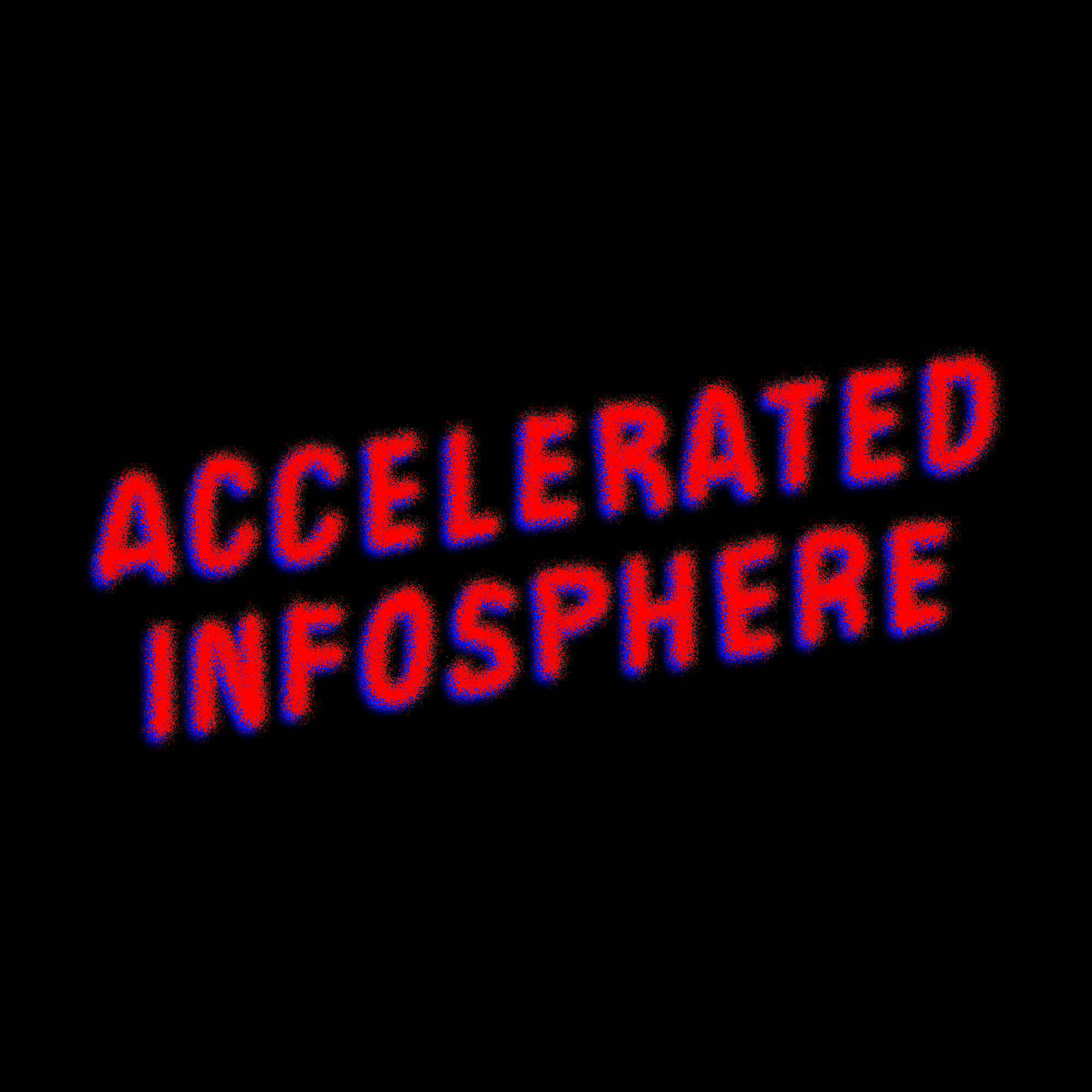PROJECT
Algofictions
NFT
2021
Collection of NFTs that contain excerpts from my master’s dissertation at the RCA. The idea is to inspire street art protest aesthetics into the digital image, imprinting critical messages about its nature.
IMAGE IMPERIALISM - MINTED
ACCELERATED INFOSPHERE - MINTED
TECHNOLOGY IS HUMAN - MINTED
The present is being cancelled
Many public opinion leaders have proclaimed during the pandemic that the future is cancelled, although the expression has been flagged several times during the last decade by thinkers Mark Fisher, Franco Berardi, Alex Williams and Nick Srnicek, among others. With these short references I want to highlight the fact that it is impossible to cancel the future. Hence, I want to stress: if we consider it is possible, then, who cancels the future? And the future of who or what?
Accelerated infosphere
From a metaphysical point of view, matter was, is and will be. It is the accelerated infosphere what blocks our capacity to act now, in the present, to think and built alternative futures to the catastrophic one scientists, biologists, sociologists and maybe economists are predicting. Franco Berardi (2018) states that “when the acceleration of cyberspace breaks the rhythm of mental time, and we no longer know what is relevant and what is irrelevant in our surrounding environment, this is what we call “chaos”: the inability to attribute meaning to the flow, the breakdown of our framework of relevance.
Chaos
A special vibration of the soul spreads out at this point, which we call “panic”: the subjective recording of chaos.” Therefore, it is the accelerated infosphere who is cancelling something: the present –human, and non-human.
Image imperialism
Trevor Paglen (2014) refers to Harun Farocki as “one of the first to notice that image-making machines and algorithms were poised to inaugurate a new visual regime. Instead of simply representing things in the world, the machines and their images were starting to “do” things in the world”, thus condemning the human eye to an anachronistic existence, “machines were starting to see for themselves”. This new visual regime inaugurated by image-making machines and algorithms, described by Farocki is the current visual regime we inhabit that I call image imperialism. These machines and their images are already “doing” a lot of things in the world, maybe too many. It’s uncontroversial to suggest that images supplant reality. Joan Fontcuberta (2019) asserts that we are not interested in reality, we are interested in a reality mediated by screens. This mediated content is effectively infinite or, at least, impossible for a single human mind to process.





